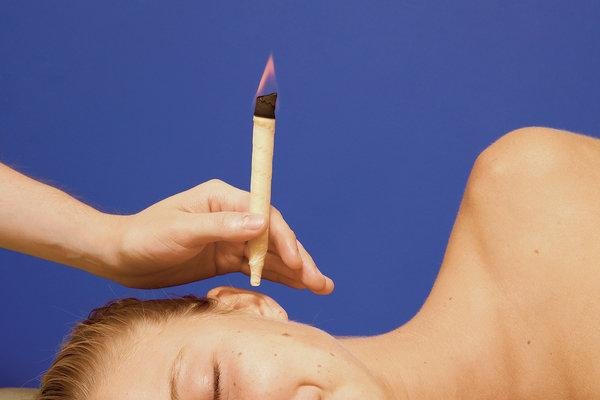This Is Why You Feel Bunged up All Winter
Your nose is full of boogers. Your ears are blocked and waxy. And your eyes are crusty and gross. What gives, Beijing? Actually, a better question would be, what gives, Beijing winter? because most of these problems can be blamed on the atmospheric conditions that the capital experiences during these frigid months.
Below, we talk with a specialist from Raffles Hopsital Beijing about this tricky seasonal problem, and how to deal with it.
Boogery Nose
Beijing during winter is dry. Really dry. The average annual percentage of humidity is 57 percent and the driest month is February, which hovers around 40 percent humidity. This dry air, plus cold outside temperatures and hot air indoors makes it harder than usual for our nasal passages to stay moist. As Dr. Chisholm puts it, "during winter in Beijing, the trifecta of factors that can cause runny or congested noses (non-allergic rhinitis) are all in play – cold air, dry air, and irritants, including traffic fumes and cigarette smoke."
Here's what you can do about it: Run a humidifier at home, and at your office (according to some reports, indoor humidity levels can plummet as low as 10-20 percent during winter). Just be sure to clean it regularly to prevent mold growth. For when you're out and about, Dr. Chisholm recommends avoiding especially dusty, cold, polluted areas whenever possible. Instead of aggressively blowing your nose all the time, she recommends regularly to clean out those boogers in a gentle way by performing nasal irrigation by rinsing your nose with a salt water spray, or a Neti pot. "Certain medicated nasal sprays can also be helpful, especially if you also have hay fever." The polluted air in Beijing actually comes in handy sometimes – by wearing an air pollution mask, you will create a humid little pocket of air around your nose, which will help it to remain moist.
Blocked, Waxy Ears

First things first – ear wax is good. It's supposed to be there. You need it. Ear wax keeps your ears clean by filtering dust, pollution, and other substances (shampoo, sand), and protects the ear canal from infection. But in winter, it can feel like our ear wax production goes into overdrive, right? Wrong, according to Dr. Chisholm: "It’s a common perception [that we produce more wax at different times] but there doesn’t seem to be much evidence for it. Retained water (e.g. from swimming) is one of the main causes of ear wax overproduction, but mostly it is ‘idiopathic’ which is a fancy way of saying we don’t know the cause." Regardless, ear wax can be problematic...
Here's what you can do about it: "If it builds up and becomes impacted it can cause pain and interfere with hearing," Dr. Chisholm says, adding, "If this happens using ear drops containing mineral oil or hydrogen peroxide for a few days helps to soften and clear the wax." Natural oils (olive, coconut, almond etc.) can also be effective in softening any impacted wax and helping it migrate out of the ear on its own.
Oh, and put down the cotton swab. And the traditional Chinese bamboo ear pick. These are actually the ideal way to push ear wax even further into your ear canal, where it can cause damage and block your hearing even further. Furthermore, 'ear candling' is not advised as it is not effective and can cause burns. If a build-up of ear wax is causing problems, your doctor can flush it out or manually remove it for you."
Dry, Crusty Eyes
Beijing in winter is freezing cold outside, toasty hot inside, and super dry everywhere. It's also windy. These factors all conspire to make your eyes drier than an all-gin martini served in an Algerian desert in June. This is also aggravated by our obsession with computers, phones, and TV screens, as studies show that when we are looking at a digital device, our blink rate plummets from around 20 times per minute to a low, low, three times per minute. Blinking less means less lubrication for the eyeball. Not a good combination, fam.
Here's what you can do about it: Get yourself some over-the-counter eye drops to keep your eyes lubricated on dry days. Wear sunglasses or clear goggles outdoors on really windy days (especially if you're riding a bike or scooter) and once you've got your daily fix of the Beijinger's high-quality reportage, put your phone down and give your eyes a break. That, or blink more. You can also look into taking omega-3 fatty acid supplements, which may help with dry eyes.
READ: A Cheat-Sheet For Keeping Our Pets Happy and Healthy Through the Winter
Photos: Unsplash







